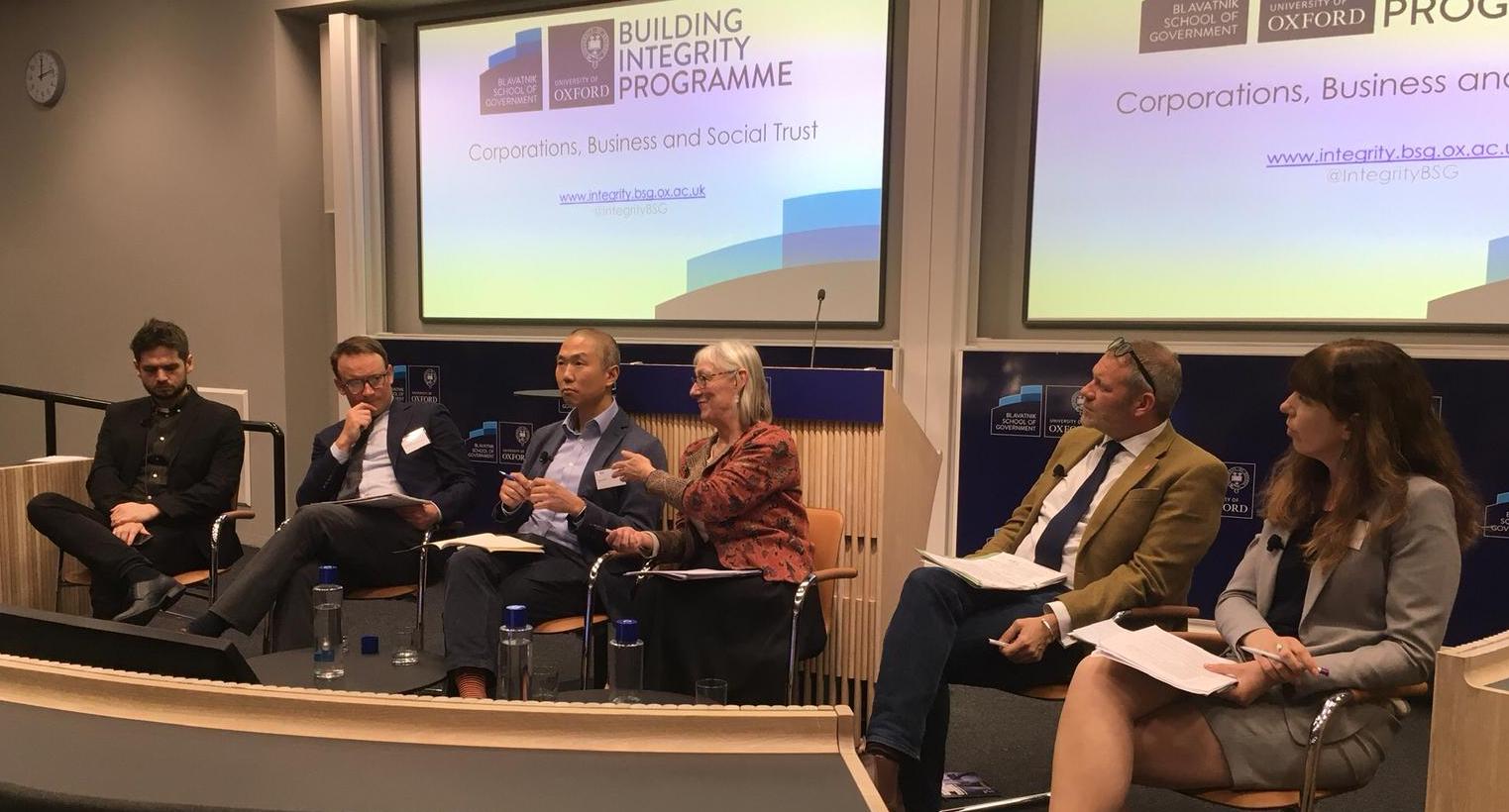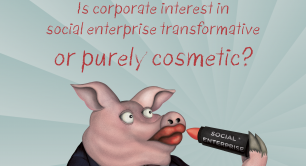Social trust: are corporations eroding the moral fabric of society?
Whether it is social media giants using what they know about us to meddle with democracy or corporate tax arrangements that seem unfair and impossible to police, the influence of corporations in eroding social trust could have a detrimental effect on society, according to a new report.
The report, Corporations, Business and Social Trust, by Nikolas Kirby and Andrew Kirton, launched on Thursday 28 March, puts forward the theory that, should this erosion continue, “distrust may cause communities and states to fracture”.
It defines social trust as “the level of assurance that fellow citizens will not be inclined to cheat or take advantage of others”. Without social trust, the report says, “there is no such thing as society” because people can no longer operate according to a “shared system of moral obligations”.
We have to work through how markets reward businesses that do the right thing
At a discussion to launch the report at Oxford University’s Blavatnik School of Government, Peter Holbrook, CEO of Social Enterprise UK, said: “There is an erosion of trust in businesses that we can no longer hold to account and that does require greater international cooperation, unfortunately at a time of international fragmentation.”
He added: “We absolutely have to work through how markets reward businesses that do the right thing rather than businesses that don’t. The dirty linen is in financial services, it’s in the City [of London], it’s in the obscure parts of the economy.”
Holbrook was responding to a stout defence of corporates by Lucy Parker, a partner at the Brunswick Group, a consultancy that advises businesses how to navigate financial, social and political worlds to build trusted relationships with stakeholders.
Although confessing herself an admirer of social enterprises, which Holbrook had earlier described as builders of social cohesion, social trust and social capital, Parker warned of demonising the concept of business.

“A lot of the things that need innovation go to the capital markets because we need different kinds of energy, different kinds of drugs. Those do not come out of a social enterprise model today, they come out of tapping capital markets,” Parker said.
Earlier she had related her experience of discussing the issue of trust with corporates, which she said was as much about their products and services – clean water providers, food companies and airlines were some of her examples – as their behaviour.
“That keeps them awake at night. If they feel they have had a successful year, they didn’t mess up on one aspect of that. We shouldn’t underestimate that,” she warned. “There are places around the world where buildings that go up fall down and the drugs are counterfeit.”
Redefining business for the 21st century
Parker also sits on the steering group for the Future of the Corporation, a research programme launched in 2017 by the British Academy, a research body for humanities and social sciences. The programme seeks to redefine business for the 21st century and build trust between business and society.
The report was commissioned by the British Council as part of its partnership with the Future of the Corporation programme.
Introducing the report, co-author Nikolas Kirby explained how the behaviour of those wielding political power influenced social trust.
“If you see government only treating people of a certain class fairly, you start to distrust institutions,” he said.
The report includes research that suggests citizens relate the trustworthiness of others to the behaviour of those in charge – the people who we perceive as being responsible for upholding the norms of society.
As well as mistrust of business and government, Holbrook, offering the example of the Haiti sex scandal that engulfed Oxfam last year, said we were seeing “a failure of trust in institutions full stop”.
The report includes recommendations on how social trust might be bolstered by market regulation, legal enforcement and public-private relations where companies “offer another axis of power to challenge government and the political elite”.
It also suggests that companies could proclaim stated aims such as signing up to tax responsibility charters or avoiding legal but institutionally corrupting behaviour.
With the report, the authors write that they hope to raise awareness of the importance of social trust and that their research will act as a lever point for policy.



